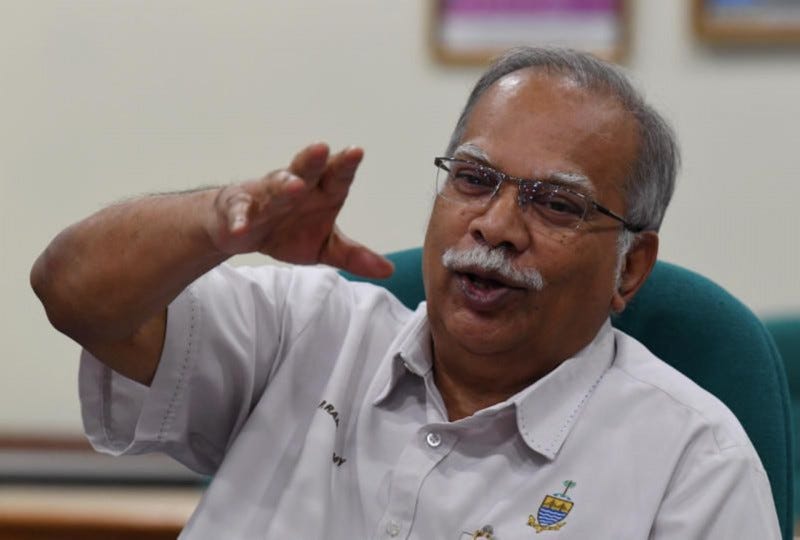
Murray Hunter
The waning support of Malaysian Indians: A reckoning for Madani Government
P Ramasamy
May 18, 2025

More than two years have passed since the PH-led coalition, comprising GPS, GRS, and BN, assumed power with Anwar Ibrahim as Prime Minister.
This uneasy alliance, forged more out of political expediency than shared vision, is beginning to show signs of strain under the weight of deep-seated ethnic, religious, social, and economic challenges.
The Madani government’s legitimacy is increasingly questioned. Ethnic Malays in Peninsular Malaysia have largely shifted their support to the opposition Perikatan Nasional (PN). Since 2023, a similar exodus has begun among the Indian community, as evident in recent by-election outcomes. The Chinese electorate remains undecided, but disillusionment and low voter turnout indicate growing frustration.
The Democratic Action Party (DAP), once a vocal champion of Chinese concerns, now appears dulled by the trappings of power. Meanwhile, internal rifts in PKR, particularly between Deputy President Rafizi Ramli and Vice President Nurul Izzah Anwar, have exposed cracks within the party. Once heralded as a multiracial platform, PKR is now increasingly Malay-centric.
Prime Minister Anwar Ibrahim, once seen as a reformist, is now viewed as a polarising figure. Internationally, he champions civilisational dialogue and multiculturalism, but domestically, he reinforces Malay hegemony. His administration has been particularly dismissive, if not discriminatory, toward the Indian community — a minority already burdened by economic and social vulnerabilities.
Indians in Malaysia face systemic exclusion. Civil service appointments are overwhelmingly skewed, with over 90% comprising Malays and other indigenous groups. Economic opportunities, government licenses, and university admissions are similarly reserved. The matriculation programme, for instance, remains largely inaccessible to non-Malays. Issues once championed by the DAP have now been met with troubling silence.
Despite making up about 7% of the population, Indians have been denied a dedicated Tamil Cabinet minister — a norm in past administrations. A recent flashpoint was the relocation of a 130-year-old Hindu temple in Kuala Lumpur to make way for a Madani Mosque, a move widely seen as arrogant and dismissive, aided by Indian politicians more loyal to political survival than community interests.
Many Indians now regard Anwar as the most indifferent prime minister in recent memory, with their plight comparable only to the long-neglected Orang Asli. The PH-led coalition’s failure to meaningfully address these issues has left the Indian community feeling abandoned.
But Indian Malaysians are not powerless. Their vote is their voice. In response to this mounting disillusionment, Urimai — the Malaysian Rights Party — is preparing a nationwide campaign to sever the Indian community’s ties with the ruling coalition. The first step: a strategic withdrawal of electoral support from the Madani government.
This is not resignation — it is a call to action. The cracks in the current administration are real. Malays have already shifted. Now, it is the Indian community’s turn to assert its political will and reshape the nation’s future.
In fact , Indian support for BN peaked in GE14 in 2013, when Indians supported Najib in droves, and majority of Indians did NOT support Pakistan PKR /DAP.
ReplyDeleteI.do.not.trust anything Palani Ramasmy writes - he's little more than a desperate shit stirrer today.